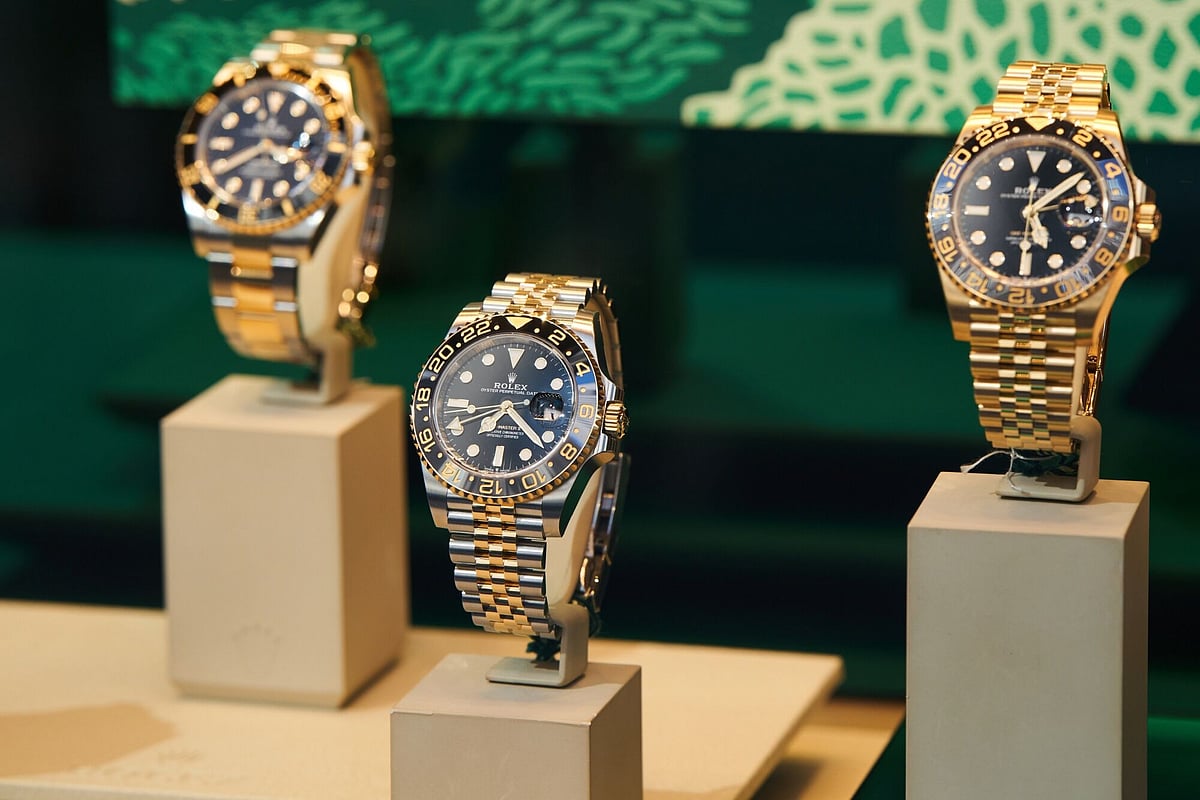Dubai: Swiss watchmakers are facing a ticking clock. President Donald Trump’s recent tariffs on Swiss goods — a staggering 39% levy — have put the industry on high alert, threatening profits and market access in the United States, one of their largest export destinations.
The below analysis draws on reporting from Bloomberg and interviews with industry executives.
Brief relief, long-term concerns
For now, Swiss brands are breathing easier. A surge in July exports allowed companies to stockpile watches in the US ahead of the tariffs, providing a buffer against immediate losses. As Georges Kern, CEO of Breitling AG, told Bloomberg, “This should be solved, or partially solved in the following weeks or months. Everybody has backup plans and some months of inventory just in case.”
Even so, the tariffs’ sheer scale — the highest imposed on any developed economy — is forcing brands to rethink strategy. Smaller houses like Favre Leuba, established in 1737, have paused US market expansion, citing potential “substantial” impacts if the tariffs last beyond a few months. Others, like ZRC 1904, are pushing ahead with planned retailer expansions despite the levy, betting on long-term resilience.
Big numbers behind the anxiety
The US represents roughly 20% of Swiss watch exports, worth 2.6 billion Swiss francs ($3.3 billion) in the first half of 2025, according to the Federation of the Swiss Watch Industry. July’s surge in exports, up 6.9% year-on-year, was largely driven by pre-tariff shipments to the US. Excluding the US, overall exports would have fallen 0.9%, highlighting struggles in other markets such as Japan and China.
Bloomberg Intelligence warns that the downward trend may resume once these stockpiles are depleted, emphasizing that the industry’s performance is highly sensitive to trade policy shifts.
Negotiation hopes for industry
Swiss officials are actively negotiating with Washington. A delegation recently met US commerce and trade representatives, and Swiss Vice President Guy Parmelin described discussions as “constructive,” though details remain sparse. The goal is to secure a deal closer to the 15% levy previously negotiated by the European Union.
Meanwhile, some signs of optimism remain. Watches of Switzerland Group Plc, the UK’s top Rolex seller, reported consistently strong US trading, fueling confidence that consumer demand can weather temporary tariff shocks. CEO Brian Duffy told Bloomberg TV, “The general mood in Switzerland is that the situation will improve from what it is today.”
What are broader implications
The tariffs come at a challenging time. Record gold prices and geopolitical tensions already affect demand for luxury watches. For brands reliant on the US market, prolonged tariffs could force higher retail prices, reduce margins, or slow expansion plans.
Short-term strategies, such as stockpiling and inventory management, may cushion the blow, but long-term stability depends on trade negotiations. Swiss watchmakers are balancing caution with confidence, hoping that diplomacy and strategic planning will mitigate one of the most disruptive challenges the industry has faced in years.
Sign up for the Daily Briefing
Get the latest news and updates straight to your inbox
Network Links
GN StoreDownload our app
© Al Nisr Publishing LLC 2026. All rights reserved.

